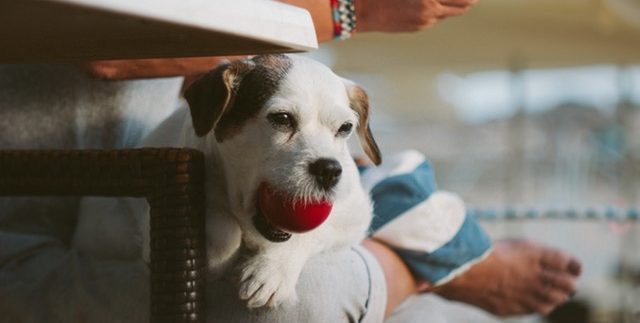If you are a landlord in Ontario, you technically cannot put a “no pets” clause in a lease or rental contract under the Ontario Residential Tenancies Act. Thankfully, most tenants are responsible pet owners, and this is usually not an issue. However, if you are set against the idea of animals on your rental property, there are exceptions to the rule.
You can refuse to rent to pet owners – but should you?
The Residential Tenancies Act only applies to people who are renting your property. You are allowed to refuse to rent to people who own pets, but you are not allowed to do anything about it if a current tenant acquires a pet unless they fall under specific exceptions. The best practice is to allow pets, especially if the prospective tenants seem like responsible pet owners, since a high percentage of renters own pets and you could be screening out responsible, long-term tenants if you don’t allow them.
Exceptions to the rule: Damage, excessive noise, allergies, and condos
Under the current Act, the only circumstances in which you are allowed to evict tenants who own pets are if the pet causes severe damages to the property, disturbs other tenants with excessive noise, or if other tenants in the building are severely allergic to the animal your tenant owns. Make sure you take timestamped pictures of the property right before the tenant moves in, paying careful attention to door frames, doors, and carpeting so that you can prove damages if you need to.
Condominiums with agreements which stipulate no pet ownership are an exception to the Act, as these agreements override the powers of the Act. If you are truly concerned about pets in a rental unit and haven’t yet purchased your first rental property, look for condos with “no pet” clauses – just make sure you are also buying into a condominium which allows you to rent the unit.
Ensure damage caused by pet is covered in contract
Your rental contract should stipulate that any damage beyond normal wear and tear is the responsibility of the tenant. If they have a pet, you may want to further specify that any damage caused by the animal (e.g. claw marks in door frames, urine stains on carpet, etc.) is the responsibility of the tenant so that they are aware that they must pay these costs.
Consult with other tenants before renting to new tenants with pets
If you have a multi-unit property in Toronto or the GTA, ensure that other tenants don’t have allergies to the animals that your prospective tenants have before you sign a rental contract with them. This will prevent the loss of trusted tenants and/or save you from having to initiate an eviction process shortly after the pet owners move in if other tenants have severe allergies.
Tenants must take care of pets and there are limits on numbers
The Residential Tenancies Act does provide some small relief for landlords in that it requires pet owners to properly feed, clean and care for their animals. Failure to do so is an “illegal act” and is grounds for eviction. While feeding and caring are hard to prove on the landlord’s part, unless there is obvious neglect, it will be very apparent if the animal is not clean. While the Act doesn’t cover the number of pets tenants are allowed to have, local animal control bylaws apply, and you can drop a tip to the agency responsible for animal control if your tenants are exceeding those numbers.
Pets are usually not a major cause of concern, beyond minor damages – which you can clearly lay out in your contract as being the responsibility of the tenant – or the occasional bad actor who will own too many pets or allow them to become a disturbance. There is always risk in being a landlord – if you want to mitigate it, hire a professional property management company like Highgate to screen your tenants and keep an eye on the property.




